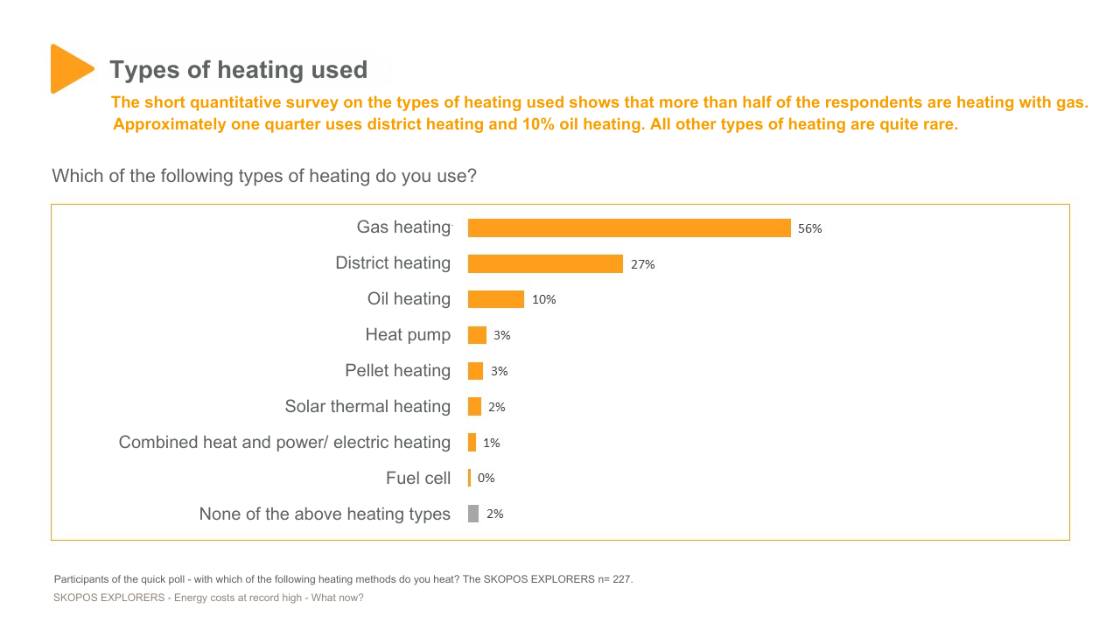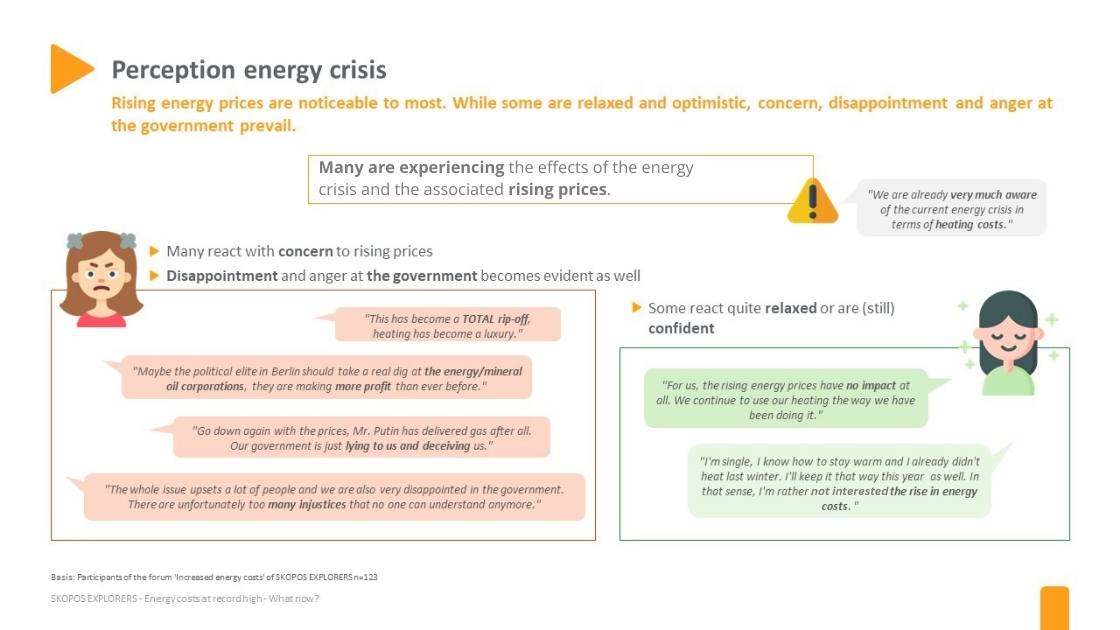In October 2022, the monthly inflation rate was +10.4%. The last time it was at such a high level was in the fall of 1981, after the first Gulf War led to rising petroleum prices. The current sustained highs were triggered by crisis- and war-related special effects, such as supply bottlenecks and significant price increases. In particular, energy costs with an increase of +34.7% and food with +13.4% (compared to 2021) are driving up inflation rates. And higher inflation rates reduce the purchasing power of consumers.
But how do Germans perceive the current energy crisis? What fears and anxieties exist in connection with it? What impact does the energy crisis have on individual heating costs? And are there any savings measures or strategies that Germans are taking to reduce their heating costs? What are the expectations of policymakers? Which government measures are considered reasonable?
We asked the participants in our qualitative online community SKOPOS EXPLORERS about these and other questions. The exchange with 123 users in an online forum yielded exciting findings that provide insight into current perceptions, prevailing fears and needs, and existing savings strategies.
Because one thing is certain: the rising energy prices are clearly noticeable for most people. While some react in a relaxed and optimistic manner, concern, disappointment and, in some cases, anger at the government predominate. Fears and anxieties are mainly expressed in relation to personal effects, such as the upcoming utility bills. But Germans are also concerned about energy shortages in general and potential social discord.
To counteract the whole problem, for example, many have adjusted their current heating behavior. However, most people do not want to give up heating altogether. But they are heating less and, above all, more consciously. The savings measures used to achieve this range from reducing the heating temperature to moving to a more energy-efficient environment.
In addition, many respondents express the desire for non-bureaucratic and needs-based measures on the part of policymakers to curb the current energy crisis.
Do you also want to quickly and easily explore a smaller, urgent question for which the “big study” is not worthwhile? Or do you want to supplement a quantitative study with some qualitative quick insights? Then we have something for you: the SKOPOS EXPLORERS, our qualitative Community.
Learn more about it here:











